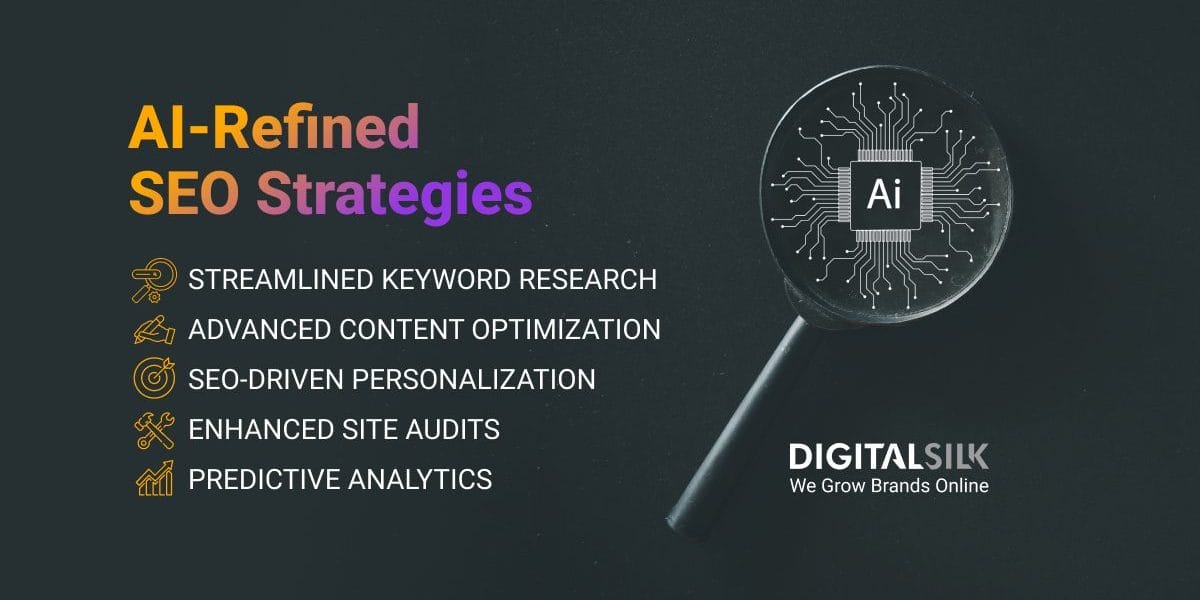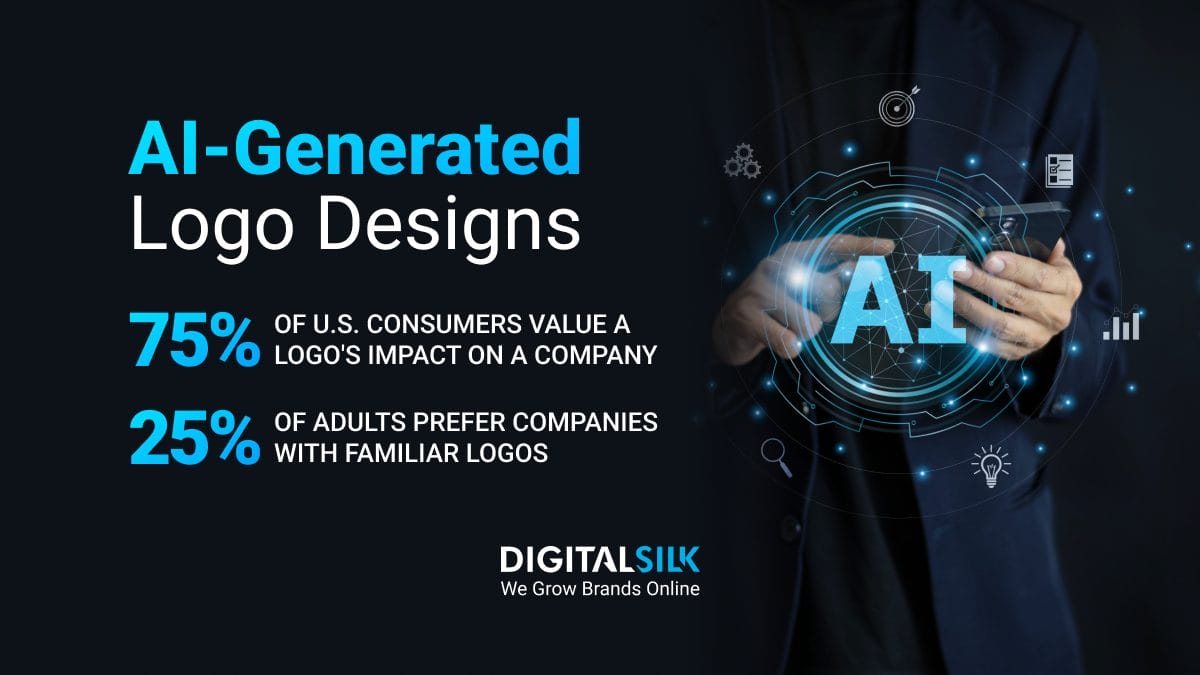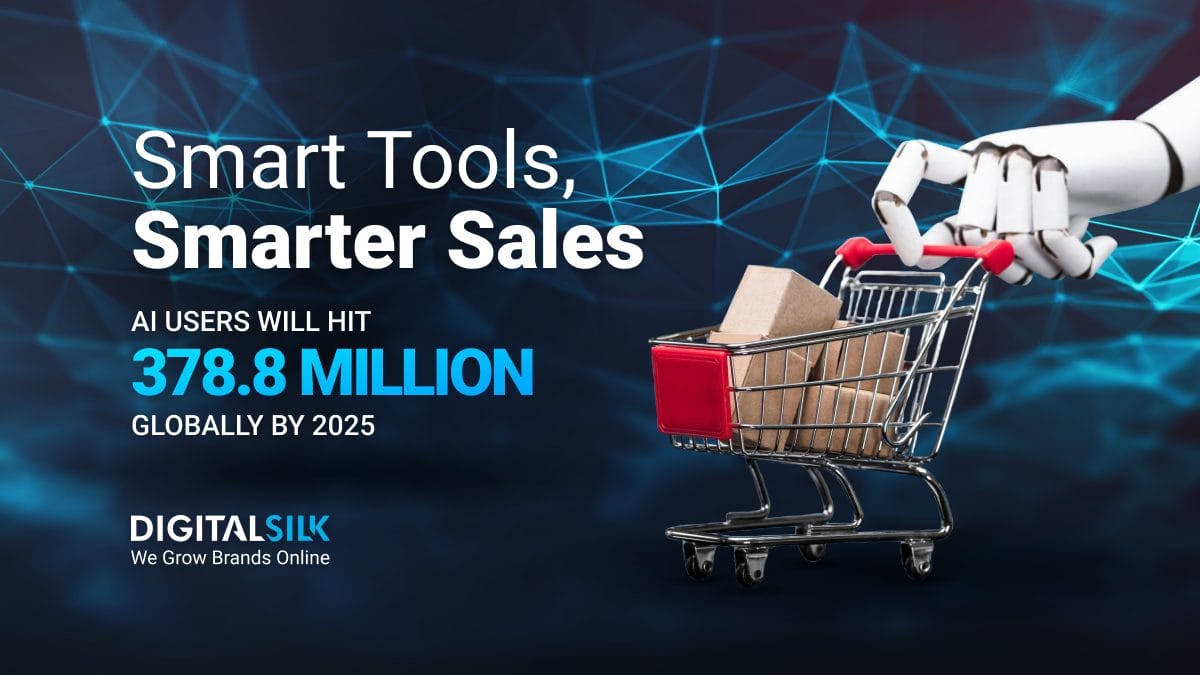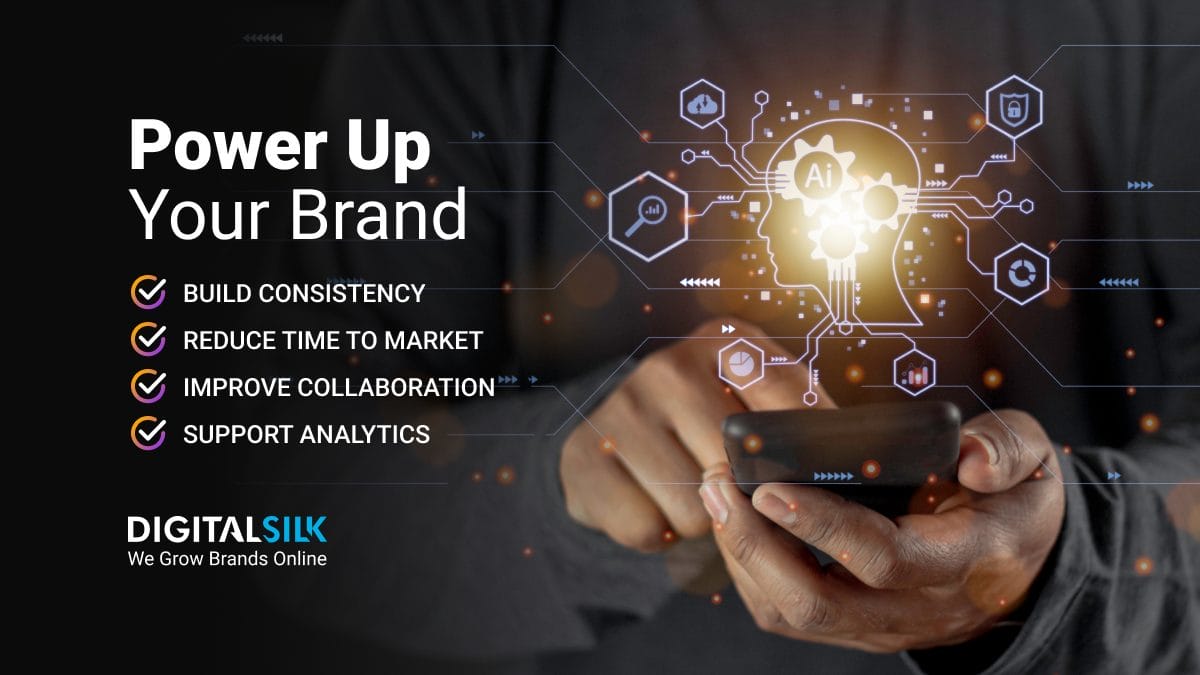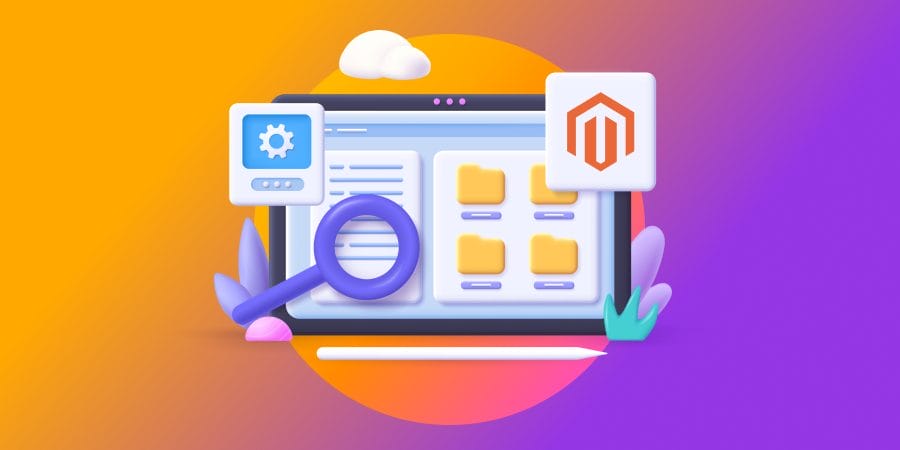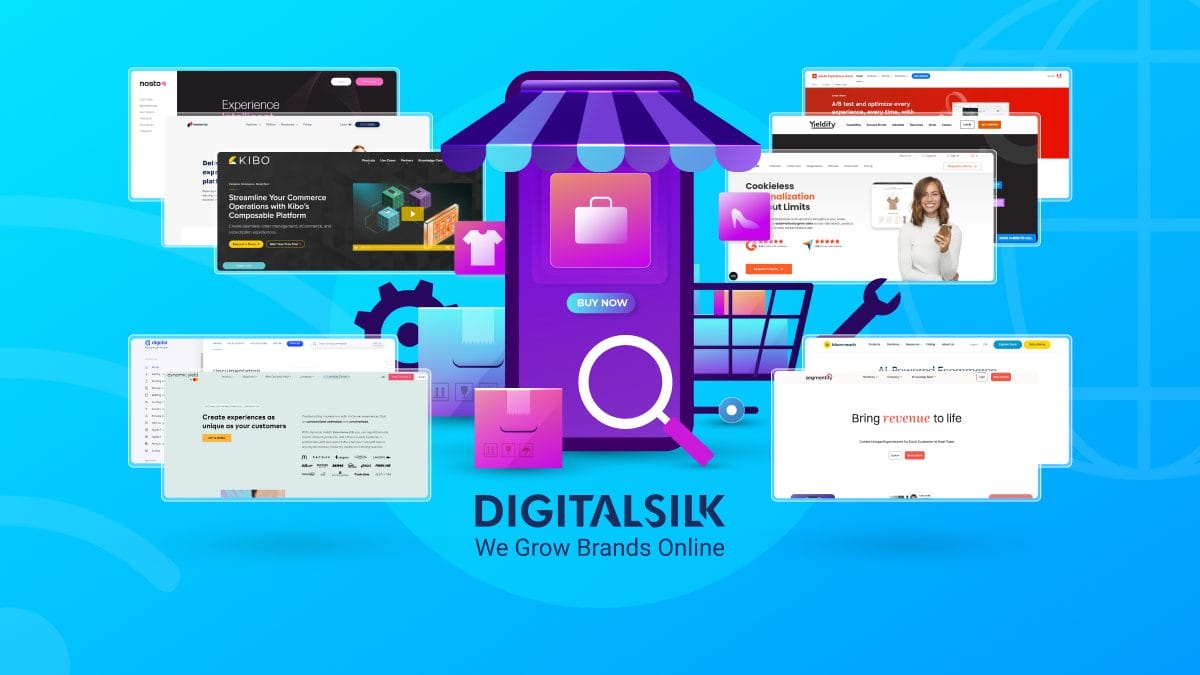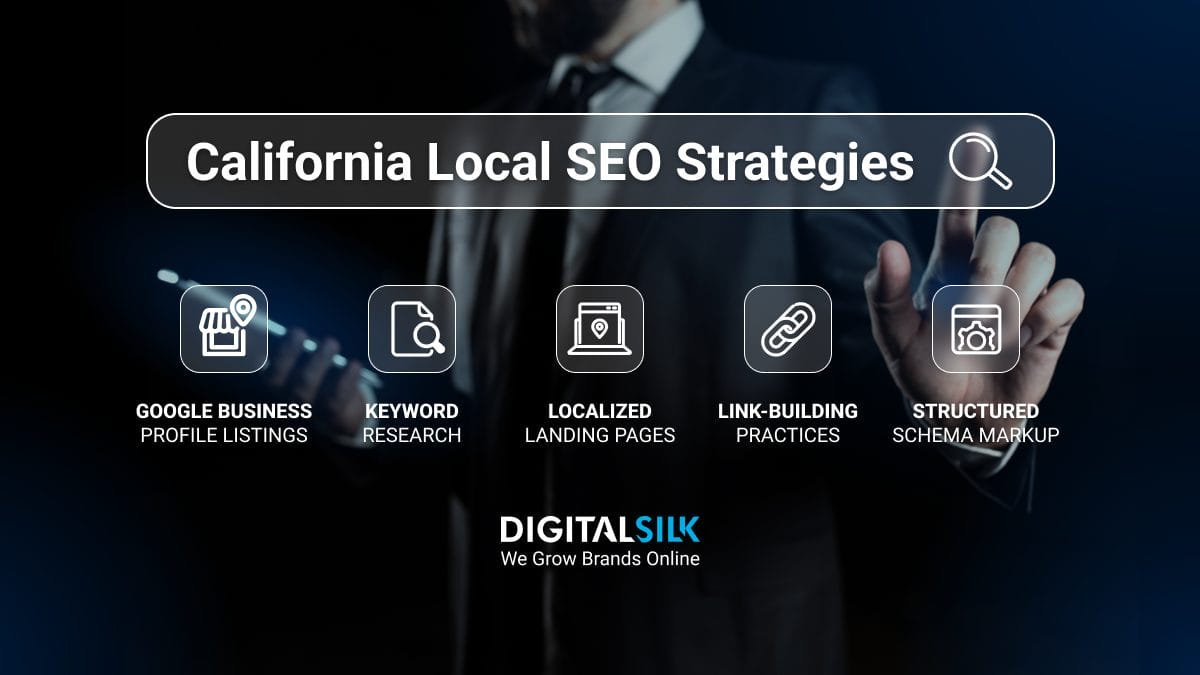The global AI market size is projected to reach $243.72 billion in 2025, with numbers expected to go as high as $826.73 billion by 2030.
As artificial intelligence continues to be a hot topic in the digital marketing industry, its effects on search engine optimization (SEO) and website rankings have grown exponentially.
Nowadays, SEO is more than just a chess game with keywords and backlinks — it’s become more efficient, accurate and personalized for optimal results when implemented correctly with AI.
In this post, we’ll examine the effects of combining AI and SEO strategies and how businesses can leverage this technology to establish industry authority and improve search engine rankings.
How Does AI Influence SEO Strategies?
Using artificial intelligence for business growth is no longer a futuristic concept.
These intelligent algorithms have fundamentally altered how users interact with content online and how companies market their products and services.
For SEO, this means using AI tools to learn, analyze, adapt and automate processes to drive organic traffic, increase engagement and boost sales.
Below, we’ve compiled 10 ways AI is reshaping traditional SEO practices:
1. Streamlined Keyword Research
Artificial intelligence can quickly scan and analyze large volumes of data from search engines to determine keyword intent, identify long-tail phrases, observe user search patterns and conduct competitive analysis.
As a result, AI-powered tools can help businesses identify high-performing keywords and optimize their content to achieve better search engine rankings.
This process also includes finding related or semantically linked phrases to improve keyword density.
By doing so, businesses can optimize their content marketing strategies for higher visibility, organic reach and industry authority.
This process also minimizes the guesswork and time-consuming tasks commonly associated with traditional keyword research.
With effective AI implementation, you can easily adapt your keyword strategy to accommodate changing consumer preferences and market demands.
For instance, SEMRush’s Keyword Magic Tool can help you generate clusters from a single seed keyword and provide detailed metrics for each suggestion.
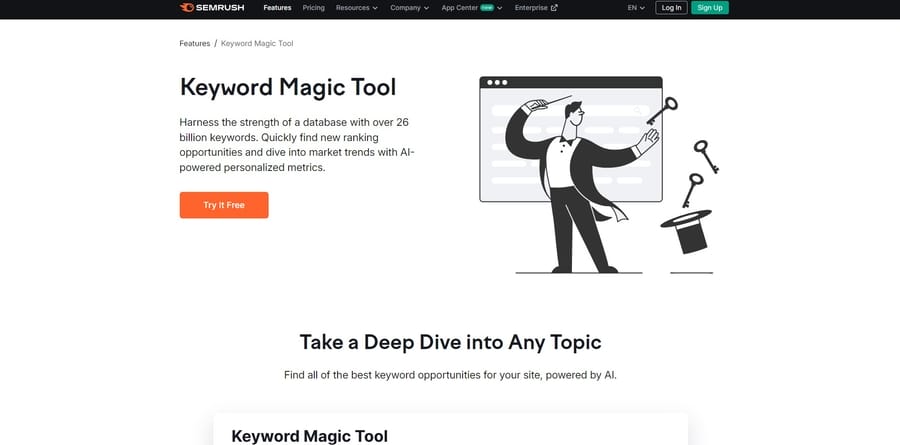
2. Advanced Content Optimization
AI algorithms can analyze your website content to determine keyword relevance, suggest appropriate meta titles and descriptions, scan for readability and suggest content improvements.
Tools like Yoast SEO or RankMathSEO can help automate more tedious and repetitive SEO tasks, so you don’t have to check for keyword density or meta tag optimization manually.
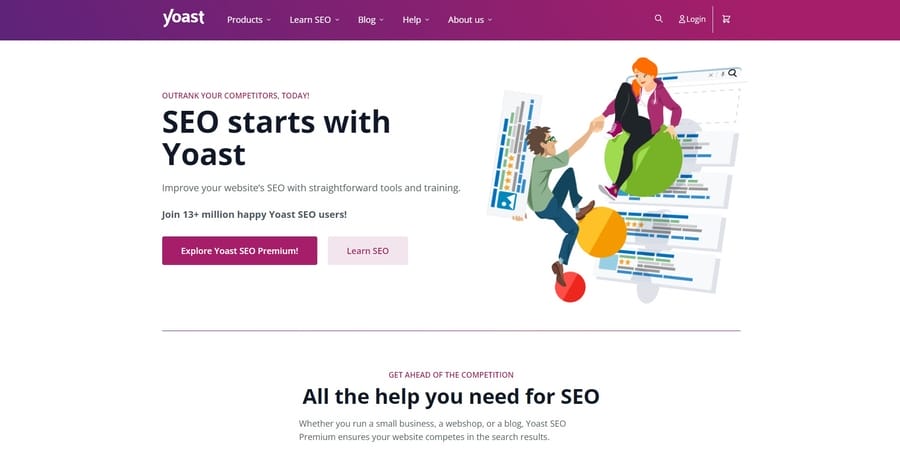
With Natural Language Generation (NLG), you can automatically generate compelling metadata, write punchy headlines and improve the general structure of your content to meet Google’s latest search algorithm updates.
Moreover, these tools can optimize your website marketing strategy by suggesting content ideas, drafting outlines and generating entire articles based on your target keywords.
3. SEO-Driven Recommendations And Personalization
71% of consumers expect personalized experiences from brands they interact with online.
Artificial intelligence tools can analyze past consumer behavior, shopping preferences and key demographics and psychographics to identify patterns and make accurate predictions.
These insights can then serve as the basis for personalized product recommendations and targeted marketing campaigns that align with your audience’s interests.
As a result, you can boost your conversion rates and build stronger, lasting relationships with customers. This approach also helps create a positive brand image and increase client loyalty.
For example, Nike used AI to drive consumer engagement, foster long-term retention, secure business longevity and boost employee loyalty.
4. Enhanced Site Audits And Error Detection
Real-time SEO auditing tools can scan your website for technical errors, broken links, duplicate content and performance bottlenecks that may negatively impact your search rankings.
AI tools can quickly flag these issues and provide actionable recommendations to fix them, saving you valuable time and resources.
For instance, Ahrefs’ Site Audit feature uses intelligent algorithms to crawl your website and identify critical technical issues that can hinder search engine performance.
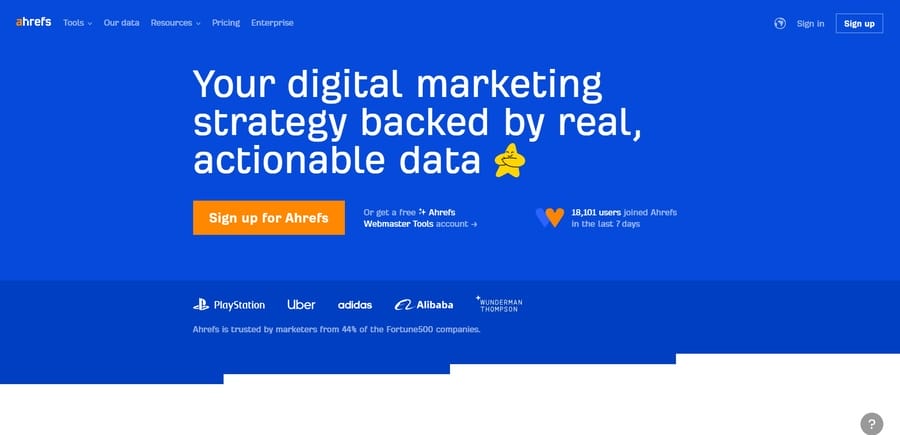
5. Predictive Analytics
AI tools for SEO strategies can analyze historical data and user behavior patterns to predict which keywords may become popular, how search algorithms may evolve and which content will resonate with your target audience.
Leveraging these results can help you position your brand as a proactive thought leader in the industry and keep your finger on the pulse of emerging trends and customer preferences.
Moreover, these algorithms can predict the outcomes of various SEO strategies and estimate the impact of real-time adjustments to help you make data-driven decisions for your business.
Google Trends is a notable example of predictive analytics — the platform lets you input specific search terms to determine which topics are trending and how search interest changes over time.
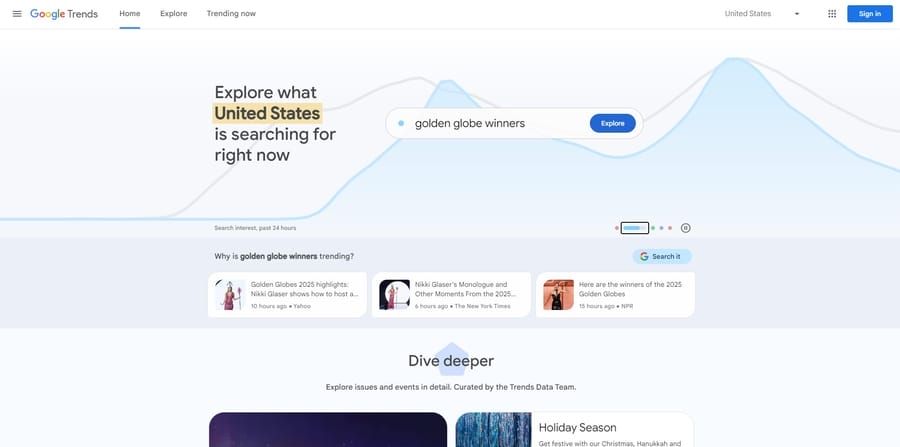
6. Page Indexing And Performance Optimization
You can improve your site’s functionality by implementing AI tools that boost crawl efficiency and speed up page indexing by prioritizing certain pages over others.
When search engines crawl and index the most relevant pages first, they can better understand your website’s structure and content hierarchy.
This results in more accurate rankings for the most valuable pages and better brand visibility.
As far as performance optimization goes, AI can analyze page data and identify areas for improvement, such as website loading speed, mobile responsiveness and user experience.
Since 88% of users feel less likely to return to a website after a poor experience, this can help you re-engage existing customers and attract new ones.
7. Backlink Quality Assessment And Monitoring
Backlinks are embedded links from other websites that direct users to your page.
Besides the obvious navigational benefits, backlinks determine how search engines rank your page — the more high-quality backlinks you have, the better your rankings will be.
AI can help you assess and monitor the quality of your backlinks by analyzing factors such as relevance, domain authority and anchor text and removing low-quality backlinks.
Additionally, AI tools can suggest actionable strategies to improve your backlink profile and attract more high-quality links.
Not to mention the impact this has on analyzing competitor backlinks to identify growth opportunities and improve your digital strategy.
8. Automated Link-Building Outreach
Artificial intelligence can vet prospects for outreach by analyzing your chosen niche, identifying verified email addresses and automating personalized outreach to secure valuable backlinks.
You can schedule outreach emails and follow-ups, monitor response rates and track performance metrics, all while saving time and resources.
9. Voice Search Optimization
62% of Americans over the age of 18 use voice search on their devices, largely thanks to virtual assistants like Siri, Google Assistant and Alexa.
To optimize for voice search, AI can help you analyze long-tail keywords and conversational language patterns found in voice queries to appear in featured snippets and answer boxes.
Focus on creating relevant and informative content that answers common questions related to your industry or niche.
You can also use AI tools to look over common voice searches related to your business and optimize your website for those queries.
This approach not only improves accessibility and inclusivity but also enhances user experience, engagement rates and customer retention.
10. Image And Video Optimization
Video content can significantly increase the amount of time users spend on your website by a significant 88%.
Additionally, using the right image formats can reduce bounce rates and improve loading times.
Artificial intelligence can automatically generate relevant alt tags based on image content and optimize video metadata for better search engine visibility.
With AI, you can also automatically resize images or compress videos without compromising quality. This can help you scale your content for different devices and improve website performance.
Why Is AI Important For SEO?
Out of 1.1 billion websites globally, only 40% rank on the first search results page.
As competition for search engine visibility increases, businesses need to adopt more advanced and efficient methods to improve their SEO strategies.
AI’s impact on online content and digital marketing is undeniable and SEO is no exception.
Using AI tools offers several benefits, including:
- Scalable performance and data analysis: In 2024, 72% of businesses had already adopted AI for at least one process. Thanks to its scalable and automated nature, AI can analyze terabytes of generated data in minutes. This can help you tailor your marketing efforts based on real-time market trends and consumer behaviors.
- Targeted recommendations: The majority of marketers reported an uplift in ROI by adopting personalization in their campaigns. AI can help you analyze user data to help you adapt content strategies and create tailored recommendations based on individual user preferences.
- Advanced automation: Using AI can increase business productivity by a significant 66%. These tools can automate mundane and repetitive tasks, freeing time for employees to focus on higher-value tasks. Furthermore, cutting-edge automation tools can help you plan, execute and assess your SEO strategies more efficiently.
- Improved local SEO: Artificial intelligence can leverage Google’s local search ranking factors and automated map integrations to boost your local visibility and match your marketing efforts to local search intent. AI can also refine geotargeting and conduct hyper-local keyword research to attract local prospects and improve customer engagement.
- Support for multilingual SEO: AI can help you translate and optimize on-page content for international audiences and expand globally by identifying market-specific keywords. You can customize regional campaigns based on consumer preferences and cultural trends with its language processing to translate keywords and create relevant content.
Potential Challenges Of Combining AI And SEO Strategies
Despite the undeniable and impactful benefits of using AI for SEO, implementing it may present some challenges:
- Required technical expertise: While AI tools take away much of the guesswork and estimation based on historical data, they still require technical expertise to operate and interpret the results accurately. Without competent guidance, you may not be able to use these tools to their full potential and get the desired results. That’s why using AI tools often requires relevant staff training and skills development, which can be a time-consuming and tedious process.
- Upfront costs: Investing in advanced AI technology can be costly, especially if you have a limited marketing budget. On average, brands spend 13.9% of their total budget on advertising so an additional tool may only add to that expense.
- Data protection and privacy concerns: Using AI can impact your brand transparency on how user data is collected, stored and used. While tailored search results can boost engagement, there’s a fine line between personalization and invasion of privacy. It’s important to consider General Data Protection Regulations (GDPR) and other data privacy laws when using AI for SEO to avoid data breaches and potential legal consequences.
- Balancing AI bias with SEO practices: Since AI is trained by humans, its algorithms often contain the same biases that skew our thinking and decision-making. When using it for SEO, consider whether the results are fair, ethical and representative of your target audience. Moreover, you should balance AI’s data-driven approach and traditional SEO practices for a well-rounded optimization strategy.
- Compatibility with existing infrastructure: Adding another tool to your existing ecosystem can be a complex and unpredictable process. It’s crucial to consider how AI technology integrates with your current systems and processes, as well as any potential technical difficulties that may arise. Review user feedback and seek expert advice to ensure compatibility and minimize disruptions.
How To Effectively Implement AI Tools For SEO
Once you weigh out the pros and cons of using AI for SEO and decide to use it to boost engagement and conversion rates, consider the following steps for proper implementation:
- Analyze target audience: A notable 42% of marketers don’t know their target audience, which can result in ineffective marketing strategies. Think about the demographics, behaviors, pain points and needs of your audience to create more relevant and personalized content with the help of AI.
- Humanize your content: 50% of consumers can identify AI-generated content and therefore form an opinion about your brand. In the age of AI-heavy content, it’s important to maintain a human touch and bring authenticity to your messaging. Use artificial intelligence to improve your content, but humanize it by making it original, relatable and conversational.
- Focus on structured data markup: As a standardized format for providing essential business information, structured data markup helps search engines understand your content and properly display it in search engine results. While AI can automatically generate schema markups, you should review and optimize each field for accuracy and relevance.
- Prioritize user experience: Creating content for marketing’s sake doesn’t work in the long run. It should be well-written, easily digestible and relevant to your audience. Consider using AI tools to understand what type of content resonates with your target demographic and create a seamless user experience that drives engagement and conversion rates.
- Rely on real-time data: Part of AI’s appeal is its ability to analyze data in real-time, which can help keep your content fresh and update your messaging according to your audience’s changing needs and preferences. However, you should regularly fact-check and optimize the information to avoid getting flagged by Google’s spam algorithms.
Future Of SEO With AI
As AI and SEO strategies continue to intersect, the digital marketing industry is ripe for innovation and growth.
This trend is unlikely to come to a halt in the near future, especially with the exciting developments in machine learning and natural language processing.
Predictive analytics seems like a promising territory for AI, as it can help predict customer preferences and anticipate their needs.
In the future, this technology could potentially automate the entire process of creating content, from ideation to distribution and conversion funnel optimization.
Another area where artificial intelligence and SEO could continuously go hand-in-hand is voice search optimization, as the hunt for more precise and conversational queries increases.
Finally, AI’s impact on SEO is evident in secure and private searches, where these tools can quickly identify and flag potential security risks, harmful or misleading content and improve user experience.
Optimize Your SEO Strategy With Digital Silk
Despite the convenience and efficiency AI offers for SEO strategies, search engine algorithms and changing market trends require consistent monitoring and timely adjustments.
At Digital Silk, our industry-leading team of SEO and marketing specialists, digital and branding strategists and web designers and developers can help you create results-focused, research-backed and brand-specific strategies to boost engagement and sales.
As a recognized web design agency, our services include:
For each partnership, we take full project ownership, keep you in the loop at every stage of its lifecycle and offer tangible results.
Contact our team, call us at (800) 206-9413 or fill in the Request a Quote form below to schedule a consultation.
"*" indicates required fields


